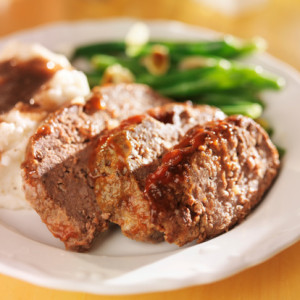
There’s a lot of information – and misinformatin – when it comes to foods that are, or aren’t, healthy. It’s easy to get confused and frustrated in your goal to eat healthy, even if your diet is giving you good results. It’s hard enough to put together a good eating plan – one that helps you achieve your goals while also enjoyable enough to follow for the long term. Here’s a couple of food myths that could be hurting your diet plan.
Myth #1: “High Protein Intake Is Hard On Your Kidneys”
Back in the 80’s, researchers discovered that as you increase your protein intake, the more protein you eat, the higher your GFR (glomerular filtration rate) gets. GFR is the amount of blood your kidneys are filtering per minute. They felt that the higher the GFR< the more work your kidneys had to do. But, about 10 years later, Dutch researchers found that although increased protein intake does mean a higher GFR, they coudn’t find any effect on kidney function. And, there’s never been any published research showing that high protein means kidney damage. Your muscles need protein to help rebuild after a workout – so a good rule of thumb is 1 gram of protein per pound of your target body weight per day. If you weigh 200 lbs and want to loose weight down to 180 – take in 180 grams of protein per day. If you weigh 160 and want to add 10 lbs of muscle, take in 170 grams of protein per day.
Myth #2: “Sweet Potatos are better than regular potatos for your diet.”
For most people, their source for white potatos would be highly processed versions – like potato chips or french fries. The reality is, they can both provide different nutritional benefits. Sweet potatos do have a lower glycemic index, more fiber, and more Vitamin A. White Potatos, have more essential minerals like iron, magnesium, and potassium. And since most people don’t eat white potatos without butter or sour cream, these toppings help lower the overall glycemic index for white potatos as well. So, adding a baked potato to your diet once in awhile can provide a good source of minerals while also adding variety to your diet plan.
Myth #3: “Eating Red Meat Causes Cancer”
A Japanese study in the 1980’s showed that compounds caused by overcooking red meat under high heat increased cancer rates in rats. The reality is, no study has proven a correlation between eating red meat and increased cancer rates. So – go ahead and enjoy red meat. Just trim off any overcooked or burned portions if you’ve been grilling. It tastes better that way anyway!
Myth #4: “Don’t Eat Salt – It Causes High Blood Pressure”
Studies have shown that if you have hypertension (i.e. high blood pressure), decreasing your sodium intake can help. But, there’s never been any proof that salt causes high blood pressure. If you have normal blood pressure, don’t worry about using salt in your diet. But if you have high blood pressure, you might be senstive to salt, so talk to your doctor about whether or not you can have salt in your diet. And, if you do suffer from high blood pressure, you might want increase your intake of potassium-rich foods – keeping a balance between salt and potassium is what matters. Dutch researches found that low potassium intake has the same impact on your health as too much salt intake. For instance, spinach, broccoli, bananas, white potatoes, and most types of beans each contain more than 400 mg potassium per serving.

